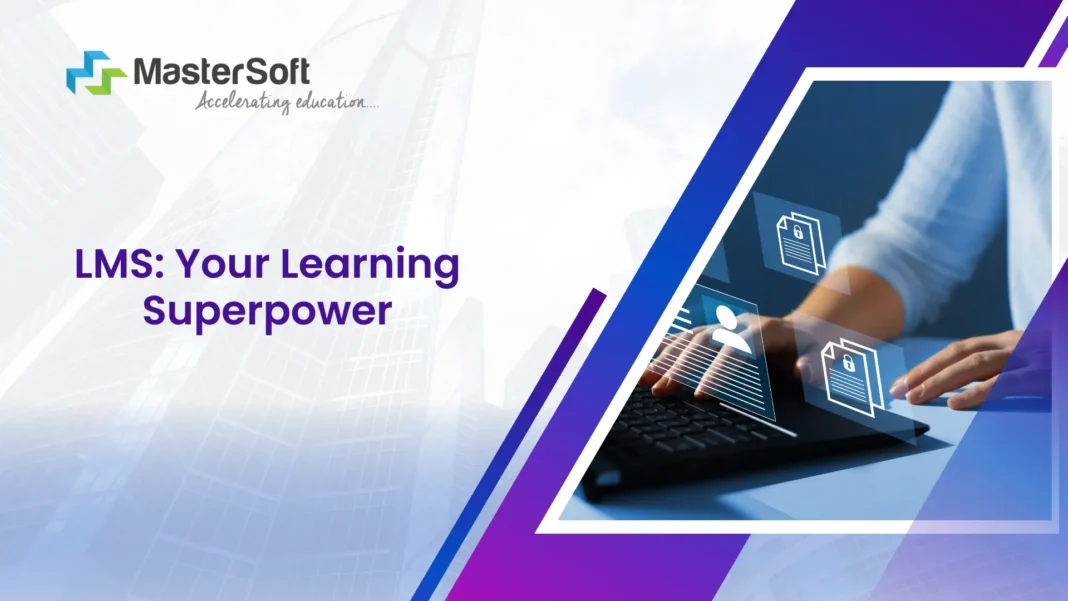In today’s fast-paced and digitally-driven world, the need for effective education and training solutions is more crucial than ever. Learning Management Systems (LMS) have emerged as a vital tool in facilitating and managing educational experiences for learners and educators alike. These platforms offer a wide range of features that enhance the learning process, making education more accessible, efficient, and engaging. In this blog, we will explore what an LMS is, its key benefits, features, and how it is transforming the educational landscape.
What is a Learning Management System?
A Learning Management System (LMS) is a software application that enables the administration, documentation, tracking, reporting, and delivery of educational courses or training programs. It provides a centralized platform for educators to create, manage. Deliver content while allowing learners to access materials, complete assessments, and track their progress. LMSs are used in various settings, including schools, universities, corporate training programs, and professional development initiatives.
Key Benefits of Using an LMS
- Accessibility and Convenience: One of the most significant advantages of an LMS is its ability to make learning accessible anytime and anywhere. Learners can access courses and materials from any device with an internet connection. Whether they are in a classroom, at home, or on the go. This flexibility allows individuals to learn at their own pace and on their schedule, accommodating different lifestyles and commitments.
- Cost-Effectiveness: Implementing an LMS can significantly reduce the costs associated with traditional training methods. By minimizing the need for physical materials, travel expenses, and venue rentals, organizations can save money while providing high-quality training. Additionally, LMSs allow for the efficient delivery of training programs to a larger audience without incurring extra costs.
- Improved Engagement: Many LMS platforms incorporate interactive elements such as quizzes, multimedia content, and gamification features to enhance learner engagement. By providing a more dynamic and interactive learning experience, educators can keep students motivated and interested in the material. This engagement is essential for fostering deeper understanding and retention of knowledge.
- Personalized Learning: An LMS can offer personalized learning experiences tailored to individual learner needs. Educators can create adaptive learning paths that allow students to progress through courses at their own pace. By assessing learners’ strengths and weaknesses, the LMS can recommend additional resources or remedial activities to help them succeed.
- Efficient Tracking and Reporting: LMS platforms provide robust tracking and reporting features that allow educators and administrators to monitor learner progress in real time. Educators can track completion rates, assessment scores, and engagement levels. Enabling them to identify areas for improvement and provide targeted support. This data-driven approach enhances the overall effectiveness of educational programs.
- Seamless Collaboration and Communication: An LMS fosters collaboration among learners and instructors through discussion forums, chat features, and group projects. These tools enable students to connect with peers, share ideas, and collaborate on assignments, promoting a sense of community and enhancing the learning experience.
Read More Here
Key Features of a Learning Management System
- Course Management: An LMS allows educators to create, organize, and manage courses easily. They can upload content, schedule lessons, and design assessments that align with learning objectives.
- Assessment and Evaluation: LMS platforms often include tools for creating quizzes, exams, and assignments, enabling educators to assess learner progress and understanding. Automated grading features can save instructors time while providing immediate feedback to students.
- Content Delivery: With an LMS, educators can deliver a variety of content types, including text, videos, presentations, and interactive modules. This diversity of content caters to different learning styles and keeps learners engaged.
- Mobile Compatibility: Many modern LMS platforms offer mobile-friendly versions or apps, allowing learners to access content on smartphones and tablets. This feature enhances accessibility and convenience for users on the go.
- Integration Capabilities: An effective LMS can integrate with other tools and systems, such as student information systems (SIS), customer relationship management (CRM) software, and various content libraries. This interoperability streamlines workflows and enhances the overall user experience.
- Security and Compliance: With the increasing importance of data privacy and security, a reliable LMS incorporates robust security measures to protect user data. Compliance with relevant regulations, such as GDPR or FERPA, is essential for institutions to maintain trust and credibility.
The Impact of Learning Management Systems on Education
The integration of LMS platforms into educational institutions and corporate training programs is revolutionizing the way we approach learning and development. Here are some of the ways LMS is transforming education:
- Blended Learning Environments: LMS platforms facilitate blended learning, combining traditional face-to-face instruction with online learning. This hybrid approach allows educators to leverage the benefits of both methods, catering to diverse learning preferences and improving overall effectiveness.
- Scalability: Educational institutions and organizations can easily scale their training programs using an LMS. Whether it’s accommodating a growing number of students or expanding course offerings, an LMS provides the infrastructure to support growth without compromising quality.
- Continuous Learning Culture: An LMS promotes a culture of continuous learning by providing access to ongoing training and professional development opportunities. Employees and students can pursue additional skills and knowledge at their own pace, fostering a commitment to lifelong learning.
- Data-Driven Decision Making: The insights gained from tracking learner data enable educators and administrators to make informed decisions about curriculum design, teaching methods, and resource allocation. This data-driven approach enhances the quality and effectiveness of educational programs.
Conclusion
In an era where education and training are increasingly driven by technology. Learning Management Systems have become essential tools for enhancing learning experiences. With their wide range of benefits, features, and transformative impact on education. LMS platforms are shaping the future of how we teach and learn. As organizations and institutions continue to embrace this technology. The potential for improved educational outcomes and workforce development becomes more significant. Embracing an LMS not only empowers learners but also positions educational institutions and organizations for success in an ever-evolving landscape.


